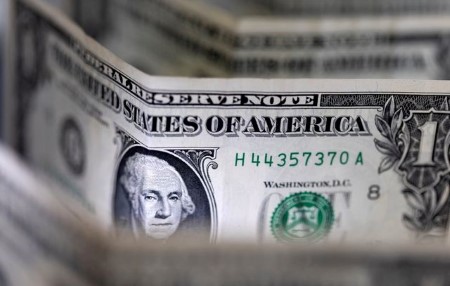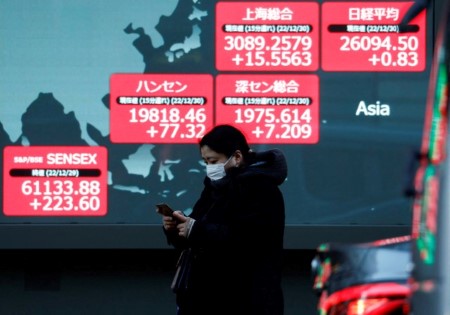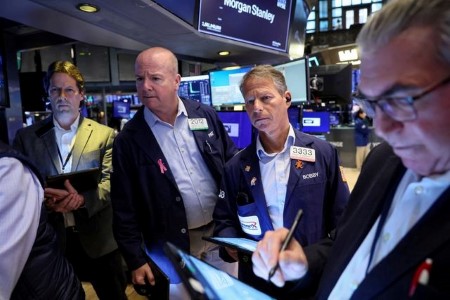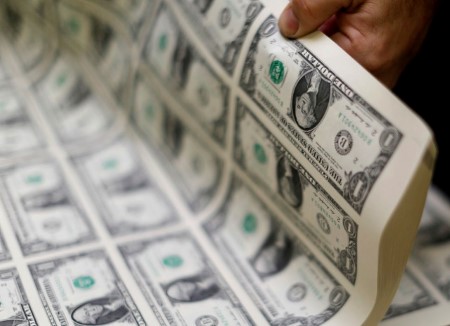LAUNCESTON, Australia, May 4 (Reuters) – The strong start to the year for Asia’s imports of crude oil came to a halt in April, with arrivals dropping to a seven-month low as top buyers China and India trimmed purchases.
A total of 108 million tonnes, or 26.39 million barrels per day (bpd) was imported by Asia last month, according to data compiled by Refinitiv Oil Research.
This was down from March’s 27.6 million bpd, which in turn was lower than February’s 29.4 million bpd and the 29.13 million bpd in January.
The decline in April arrivals was led by China, the world’s largest crude importer, with Refinitiv estimating imports at 10.67 million bpd, down from the 34-month high of 12.37 million bpd in March.
It was always likely that China’s imports would pull back in April as that month and May are the peak season for refinery maintenance.
But after the strong start to the year for China’s crude oil imports, there are now several question marks over the outlook for coming months, as the rebound in the world’s second-biggest economy appears uneven.
The official manufacturing Purchasing Managers’ Index (PMI) dropped to 49.2 in April from 51.9 in March, slipping below the 50-level that demarcates expansion from contraction for the first time since December.
The PMI was also below market expectations for a positive outcome of 51.4.
Manufacturing is one of the key pillars of China’s economy from a commodity demand perspective, the others being construction and infrastructure.
The news here is somewhat mixed, with infrastructure investment rising 8.8% year-on-year in the first quarter, outpacing a 5.1 rise in overall fixed-asset investment, while property investment fell 5.8%.
There is also the question of crude prices and the lag between moves in these and imports, given the time between refiners ordering oil and its delivery can be as long as three months.
Crude oil prices were kicked higher at the start of April when the OPEC+ group of producers surprised the market by announcing an additional 1.16 million bpd of output cuts.
Benchmark Brent futures LCOc1 rose from just below USD 80 a barrel to a peak of USD 87.49 a barrel on April 12, but have since slipped back to end at USD 72.33 on Wednesday as concerns over global growth trumped fears of tighter supply.
Nonetheless, the rise in Brent futures, which was accompanied by higher official selling prices for May cargoes from Middle East exporters such as Saudi Arabia, may put a dampener on Chinese demand for May and June cargoes.
India slows imports
This could extend to other major buyers in Asia, with the region’s second-biggest importer India showing signs of moderating crude appetite in April.
Imports were estimated at 4.60 million bpd in April, down from the eight-month high of 5.02 million bpd in March.
It’s also worth noting that India’s refiners are continuing to switch to cheaper Russian crude, with arrivals in April at 1.68 million bpd, only slightly down from the record high of 1.72 million bpd in March.
Russia has become India’s largest crude supplier, displacing erstwhile OPEC+ ally Saudi Arabia, with India’s April imports from the kingdom dropping to the lowest since September 2021.
Russian crude is also winning against Saudi oil in China, with April arrivals of 2.10 million bpd beating out the 1.73 million bpd from the Middle East’s top exporter.
Outside of the two Asian heavyweights, there was a mixed picture with number three importer Japan recording arrivals of 2.77 million bpd, up slightly from March’s 2.52 million, while fourth-ranked South Korea saw imports slip to 2.56 million bpd in April, a 10-month low and down from 2.96 million bpd in March.
The overall view on Asia’s imports is that April showed a loss of momentum after a strong start to the year.
Whether the slower April imports are mainly because of technical and temporary factors such as refinery maintenance, or if they signal the soft global economy is starting to drag Asian demand will become clearer in May and June.
The opinions expressed here are those of the author, a columnist for Reuters.
(Editing by Kim Coghill)







 DOWNLOAD
DOWNLOAD









